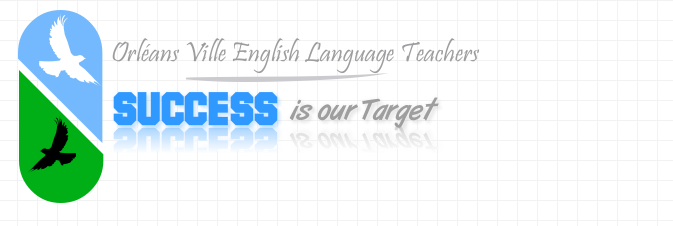Boucherit
Honour Member



|
 Subject: About time.Part two. Subject: About time.Part two.  Mon 11 Apr - 19:01 Mon 11 Apr - 19:01 |
|
|
The present simple pops up all over the place and we can use it when we're talking about something that may well have been written a long time ago because you can still read it today. One of the favourite functions you find in all good grammar books is its use for something you do again and again. You get up, you eat breakfast, you go to work, you play tennis, you take the dog for a walk and so it goes (present simple) on and on just like a habit.
The use that foxes (confuses) everyone is when you're talking about the future and you still use this tense. But beware! Be careful! This is only when something has been arranged for a future event or happening as in: The president arrives at 10. am tomorrow morning or even less grand: The train arrives at 10.am tomorrow morning. Some people get worried when the present simple makes an appearance unexpectedly in a story and is called the 'narrative' present as in: We went to the restaurant last night and this strange man comes (present simple) up to me and asks me if he can borrow some money. 'Comes up to me' suggests this is something you can immediately see before you.
And the sharp eyed will have noticed (that's future perfect by the way and we'll leave that for another day) that I slipped in (inserted) the past simple (went). Now the past simple is nowhere near as colourful. It just says when something took place and that's it. You know exactly where you are with the past simple. You know that the moment someone opens their mouth and starts a sentence like: I saw, I knew, I understood, I heard, that there's going to be either an indication of a past time or an adverb indicating this time in the past.
No worries there then. So that's the two main'simples' dealt with and packed up. But of course English likes to be different and any self respecting simple tense has to have a partner that goes under the name of 'continuous' or 'progressive.' Personally I prefer the former because 'progressive' sounds a bit political to me. You know sometimes when you're watching (see I am using it already -- I can't stop) television and you have to leave the room, you can always 'pause' the picture so that it sits there on the screen and doesn't move an inch.
This non-moving picture is a bit like the simple tenses I described above. Well, then you come back, press a button again and everything starts moving. The continuous form is a bit like that. I am talking (present continuous) to you is something I am doing (present continuous) now. It also has another life that suggests the future as in: I am working late tomorrow. You can say that as long as you include an adverb of time that tells you that it's future. So we are now left with the past continuous. This is the background or interrupted tense.
It leads a disturbed life. Again when you hear someone starting to say: 'When I was walking home last night', you can be pretty sure that the speaker is just about to say what happened next. Forget 'I was walking', that's just the background and it's going to get interrupted with -- 'I saw three elephants strolling down the road'. You see, the past continuous was just there to set the scene and all you're really interested in is these three elephants.
I'll grab (get hold of) an expression I mentioned both in the title and in the text and conclude with: It's about time I stopped.
|
|

